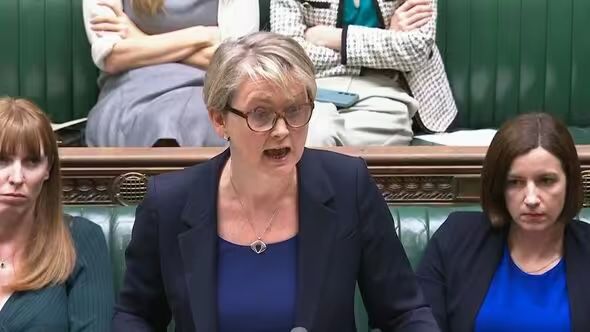A significant number of live police investigations into child sex grooming gangs involve asylum seekers and foreign nationals, according to a hard-hitting government-commissioned report released Monday.
The 200-page audit by Baroness Louise Casey warns that public institutions have consistently failed to confront the true scale of group-based child sexual exploitation, with police and councils accused of downplaying the involvement of Asian grooming gangs for fear of being labelled racist.
Commissioned following public outrage earlier this year, the report prompted an embarrassing U-turn from Prime Minister Sir Keir Starmer, who had previously rejected calls for a national inquiry. Starmer has now announced a full statutory inquiry, alongside a nationwide investigation led by the National Crime Agency.
Baroness Casey accused local authorities and law enforcement of systematic denial and of suppressing concerns first raised as early as 2009. She noted that despite repeated scandals—such as the abuse of at least 1,400 children in Rotherham between 1997 and 2013—little has changed.
“Public bodies have repeatedly used flawed or absent data to dismiss reports of Asian grooming gangs as sensationalist or biased,” she said. “This not only silences victims but also harms law-abiding members of Asian communities.”
Her review revealed that ethnicity data was missing in two-thirds of abuse cases. But in the three police forces that did collect such data, men of Asian and specifically Pakistani heritage were significantly overrepresented among suspects.
Casey also criticised officials for their reluctance to address the ethnic dimensions of grooming due to fears of inflaming community tensions.
One of the most alarming findings was that a “significant proportion” of suspects in active grooming gang investigations were non-UK nationals or asylum seekers. Yet, no official government body including the Office for National Statistics or Ministry of Justice records crime data based on nationality or immigration status.
Shadow Home Secretary Chris Philp responded by calling the findings deeply troubling. He blamed the government for failing to secure the UK’s borders and said offenders must not be allowed to use human rights laws to avoid deportation.
The UK received a record 84,200 asylum applications last year. So far this year, over 14,600 migrants have crossed the Channel in small boats a 30% increase compared to the same period in 2024.
Unveiling the report in the House of Commons, Home Secretary Yvette Cooper accepted all of Baroness Casey’s recommendations. She promised to begin collecting ethnicity and nationality data for all child exploitation suspects, improve data collection on victims, and reopen 800 cold cases potentially rising to 1,000.
She issued a full apology to victims and pledged accountability for those who had concealed or mishandled the issue over the years.
“For over 20 years, institutions have failed to treat children as children,” said Cooper. “There has been denial, flawed data, and too many perpetrators walking free while victims were left traumatised and unheard.”
She revealed that some victims were as young as 10 years old, with children with learning difficulties being especially targeted. In some cases, agencies protected abusers more than the vulnerable children they exploited.
“The blind eye turned by authorities is nothing short of a national disgrace,” she said. “Those who covered this up must face justice.”
The national inquiry marks a political reversal for Sir Keir Starmer, who just five months ago dismissed calls for such an investigation as pandering to far-Right narratives. His shift came under mounting pressure from opposition leaders and child protection advocates.
Kemi Badenoch, Conservative Party leader, criticised the Prime Minister’s delayed response: “The PM’s handling of this scandal represents an extraordinary failure of leadership. Only after relentless pressure has he accepted the need for a full statutory inquiry.”
The inquiry is expected to last around three years—shorter than the Covid-19 inquiry but will have a wide remit across England and Wales.
Baroness Casey concluded that “too much denial, too little justice, and too many criminals walking free” defined the UK’s response so far. She called for a complete reset in how child exploitation is investigated and addressed.



